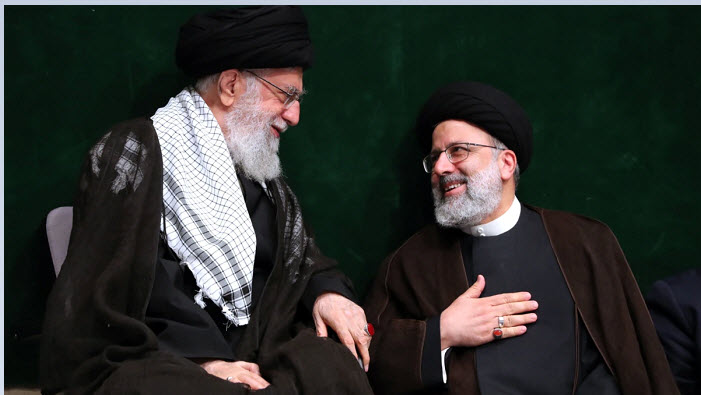
However, almost two years into his presidency, Raisi has failed to help Khamenei consolidate power in his struggling regime. Raisi’s leadership style has come under sharp criticism, with many officials and state media openly mocking him. His presidency has been marked by failed attempts to resolve the social and economic crises plaguing the nation.
His bogus claims of “eradicating poverty in two weeks” and “economic prosperity” have been widely ridiculed, as the country grapples with a plunging currency, increasing international isolation, and widespread poverty. Mohsen Hashemi, former president of Tehran’s city council, noted that the value of Iran’s currency has plummeted during Raisi’s presidency. When Raisi took office, a dollar was equal to 230,000 rials, but now, it is over 500,000 rials.
The criticism of Raisi’s presidency goes beyond economic woes. Many officials are warning Khamenei about the possibility of an uprising. Mohammad-Reza Aref, a member of the regime’s Expediency Council, cautioned against intimidating the people, as the same people who give power to a system can topple it. Javad Emam, a former state official, warned that there is a fire under ashes in the society, and more serious challenges could emerge.
Many observers believe that the nationwide uprising which erupted last September disrupted Khamenei’s plan to consolidate power. Raisi’s recent firing of the Ministers of Labor and Education and the head of the Budget and Planning organization underscores this point.
As the uprising exposes the regime’s vulnerability and the cracks in the so-called “consolidated system,” the world community should increase pressure on the regime and support the Iranian people’s demand for regime change and the right to self-determination.
The failure of Raisi’s presidency to consolidate power comes as no surprise to many. Following two nationwide uprisings that rattled the regime’s foundation, Khamenei decided to consolidate power to confront future waves of dissent. However, he underestimated the strength of the opposition, which has kept the flame of dissent alit.
In light of these developments, the international community must stand with the Iranian people and support their demands for freedom and democracy. The failure of Raisi’s presidency shows that the Iranian people are more determined than ever to overthrow their oppressors and build a new future for themselves.
 MEK Iran (follow us on Twitter and Facebook), Maryam Rajavi’s on her site, Twitter & Facebook, NCRI (Twitter & Facebook), and People’s Mojahedin Organization of Iran – MEK IRAN – YouTu
MEK Iran (follow us on Twitter and Facebook), Maryam Rajavi’s on her site, Twitter & Facebook, NCRI (Twitter & Facebook), and People’s Mojahedin Organization of Iran – MEK IRAN – YouTu







